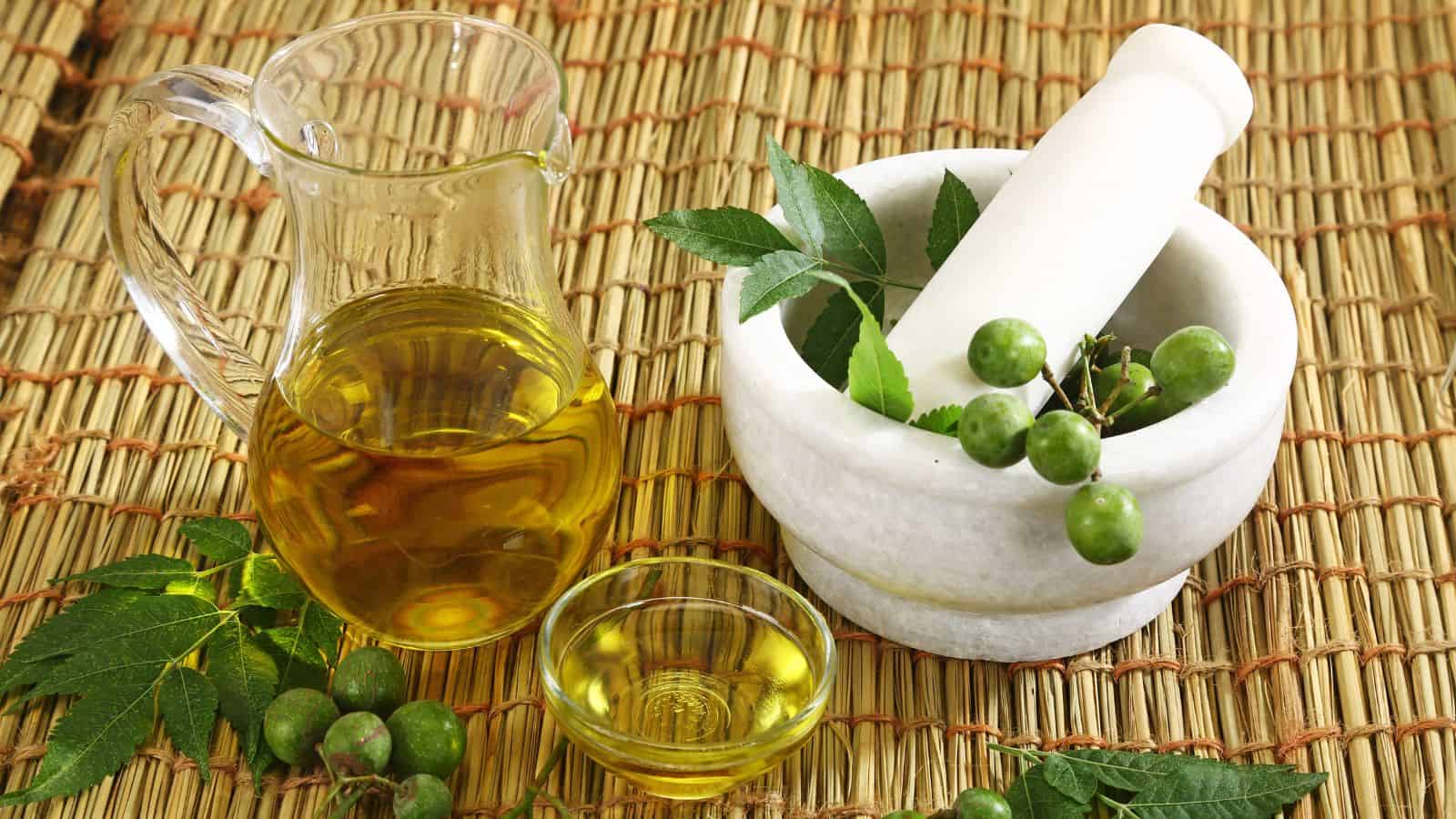Using chemical pesticides in your garden can harm beneficial insects, contaminate soil and water, and pose health risks to humans and animals. Fortunately, there are eco-friendly alternatives that can effectively control pests without the negative side effects. Here are four eco-friendly alternatives to chemical pesticides.

1. Neem Oil
Neem oil is a natural insecticide derived from the seeds of the neem tree. It is effective against a wide range of pests, including aphids, whiteflies, and spider mites. Neem oil works by disrupting the feeding, breeding, and growth of insects, making it a powerful tool in pest management.
How to Use Neem Oil:
- Dilute: Mix neem oil with water according to the instructions on the label.
- Spray: Apply the solution to the affected plants, covering both the tops and undersides of leaves.
- Frequency: Repeat every 7-14 days as needed, especially after rain or watering.
2. Diatomaceous Earth
Diatomaceous earth is a natural powder made from the fossilized remains of diatoms, a type of algae. It is effective against soft-bodied insects like slugs, snails, and ants. The sharp particles in diatomaceous earth damage the exoskeletons of insects, causing them to dehydrate and die.
How to Use Diatomaceous Earth:
- Dusting: Sprinkle a thin layer of diatomaceous earth around the base of plants and in areas where pests are present.
- Reapply: Reapply after rain or watering, as moisture reduces its effectiveness.
- Caution: Use food-grade diatomaceous earth and avoid inhaling the powder.
3. Companion Planting
Companion planting involves growing certain plants together to naturally repel pests or attract beneficial insects. This method can reduce the need for chemical pesticides and promote a healthy garden ecosystem.
Companion Planting Tips:
- Marigolds: Plant marigolds around your garden to repel nematodes, aphids, and whiteflies.
- Basil: Basil can deter mosquitoes, flies, and some beetles. Plant it near tomatoes and peppers.
- Garlic and Chives: These plants can repel aphids, spider mites, and Japanese beetles. Plant them near roses and other susceptible plants.
4. Homemade Insecticidal Soap
Insecticidal soap is a simple and effective way to control soft-bodied insects like aphids, mealybugs, and spider mites. You can make your own insecticidal soap using common household ingredients.
How to Make Insecticidal Soap:
- Ingredients: Mix 1 tablespoon of liquid dish soap (free of additives like bleach and degreaser) with 1 quart of water.
- Application: Spray the solution directly onto the affected plants, focusing on the undersides of leaves where pests tend to hide.
- Frequency: Apply every 5-7 days until the pest problem is under control.
